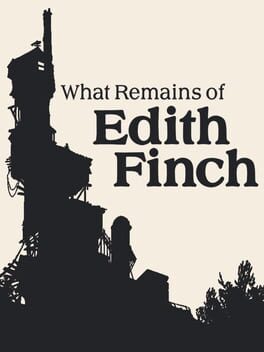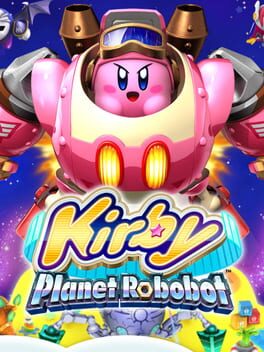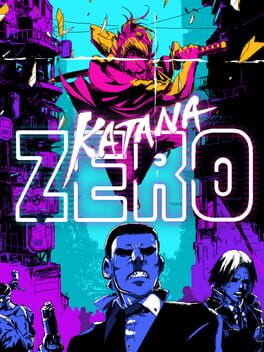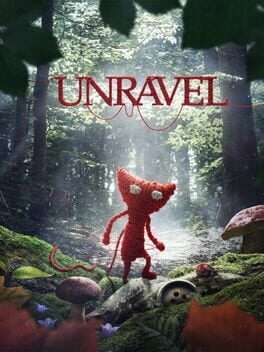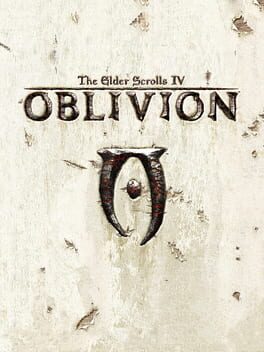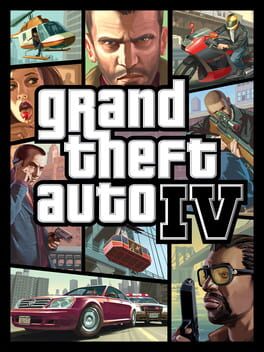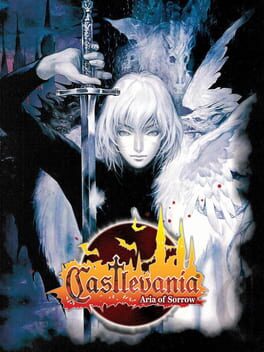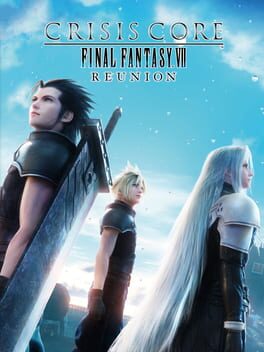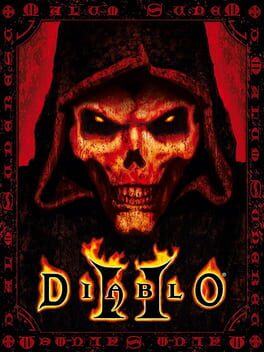Dest
43 Reviews liked by Dest
Katana Zero
2019
Katana Zero é um jogo incrível. É impressionante o que UMA pessoa conseguiu fazer. A arte desse jogo é IMPRESSIONANTE, um dos jogos indies mais lindos que já vi. É tão impressionante que praticamente cada cutscene vira um wallpaper.
A história dele consegue ser tão imersiva e boa que faz com que o jogador tente interpretar ela várias e várias vezes. Ela é tão enigmática e bem contada que meio que "obriga" o jogador a ligar os pontos e saber como tudo isso acabou.
A gameplay em si é insanamente divertida. É um jogo propositalmente pra ser um "speedrun style" que faz você pensar o que fazer antes de agir. As mecânicas dele funciona perfeitamente com o estilo do jogo de ser ágil e rápido.
Além disso, as músicas desse jogo são extremamente viciantes. O estilo meio cyberpunk e eletrônico das músicas são muito boas e encaixa perfeitamente em cada fase do jogo.
Por mais que seja bem curto, Katana Zero é um dos melhores indies lançados dos últimos cinco anos (ansioso para a dlc).
A história dele consegue ser tão imersiva e boa que faz com que o jogador tente interpretar ela várias e várias vezes. Ela é tão enigmática e bem contada que meio que "obriga" o jogador a ligar os pontos e saber como tudo isso acabou.
A gameplay em si é insanamente divertida. É um jogo propositalmente pra ser um "speedrun style" que faz você pensar o que fazer antes de agir. As mecânicas dele funciona perfeitamente com o estilo do jogo de ser ágil e rápido.
Além disso, as músicas desse jogo são extremamente viciantes. O estilo meio cyberpunk e eletrônico das músicas são muito boas e encaixa perfeitamente em cada fase do jogo.
Por mais que seja bem curto, Katana Zero é um dos melhores indies lançados dos últimos cinco anos (ansioso para a dlc).
God of War
2018
Despite how recently it was released, God of War has not only been considered by many as one of the PlayStation 4's best exclusives, but also one of the best video game rebootquels in recent memory and even one of the best games of the 2010s. Since it beat Red Dead Redemption II for Game of the Year back in 2018, I was curious to see what apparently made this game better than one of my very favorite games of all time, and after beating the game, I'm still wondering that, because God of War felt like a complete chore to play. This game did get one thing right, though, and I'll go over it quickly before getting into why I found the overall experience to be so unfun and derivative. Although practically every new AAA release tries to look and feel "cinematic", God of War did just enough in that aspect for it to feel at least a little fresh, as the use of one continuous take meshed really well with the game's lifelike visuals, rugged art direction, and ancient Scandinavian setting.
For every step that the game's atmosphere takes, the writing, gameplay, and heavy dependence on tired mechanics and systems make the game take a thousand steps back before ensuring that it steps on a giant bear trap. Now, I've only been able to play God of War III due to the unavailability of the first two games on eighth generation consoles, but I still thought that this game's combat was a huge step down from the original trilogy, as Kratos felt clunky to control with how slow his attacks, dodges, and parries were to execute. Fighting several enemies at once made me feel like I was about to have an aneurysm, as the issues of attacks from both you and your spongy enemies suddenly deciding when to land and when to miss are suddenly quadrupled when you have to deal with all of these other similarly annoying enemies, along with how the camera is so close to Kratos at all times that you can't even see more than one enemy on screen. What I especially disliked about the game's enemy encounters was how almost every single boss in God of War was a troll with a giant rock, complete with the exact same attacks and death animations that you have to see over and over again.
The unintuitive and awkward combat of God of War ties in with another one of its bigger issues, as this game felt like a mishmash of every single unoriginal trend that is present in so many modern AAA releases, and the use of those tropes is worsened by how halfhearted their executions were. In addition to the repetitive combat, God of War is plagued with a skill tree and a crafting/upgrade system that we've seen a thousand times before, and the former system doesn't work because almost none of the abilities you unlock for your weapons are nearly as effective as just pressing R1 or R2, while the latter system doesn't work because everyone is going to play this game in the exact same way, which makes the idea of locking the resources needed to craft high-level armor pieces behind a treasure trove of predictable and boring side quests even more puzzling than it already is. Speaking of which, God of War can't decide whether it wants to be an open world game or something more linear, so it decides to combine worse versions of each by filling the game with asinine collectibles and tasks that you literally have no reason to go for, with the only ones that were of any real use being Iðunn's Apples and Horns of Blood Mead.
Pretty much all of the clichés that I had just mentioned were entirely related to the gameplay, but they unfortunately made their way to the story. Not only is God of War yet another story about a grizzled old man and a bratty younger sidekick going on a journey together, but it also features the video game storytelling equivalent to bureaucracy in the form of having the plot constantly grind itself to a halt so that you have to grab some item or talk to some person before having to do those exact things again. As bad and uninspired as all of those aspects of this game were, nothing about God of War got on my nerves nearly as much as its aggravating dialogue and unbearable inclusions of humor, and that especially goes for literally everything that came out of Atreus' mouth. Throughout all 20+ hours of this game, this useless little kid never stops running his mouth, which also means that he tells you the answer to every puzzle before you even get the chance to think, comments on every single thing that happens in the game with some variation of "Well, that happened!", and constantly screams phrases like "FIRE, INCOMING!" and "WATCH OUT!" over and over again in his infuriatingly screechy voice during every single enemy encounter. Atreus is definitely the worst offender when it came to keeping me infuriated throughout the game, but he wasn't the only one to do so, as Mímir did the exact same things while also constantly spouting exposition during boat trips, and Sindri's running gag about his aversion to anything gross or dirty started out annoying before getting more and more anger-inducing as the game went on. Pretty much everything about God of War felt so market-tested, risk-free, tedious, and dull that I wondered what it was that so many people even saw in this game, and since God of War Ragnarök looks like more of the same, I really don't want to play that game at all.
For every step that the game's atmosphere takes, the writing, gameplay, and heavy dependence on tired mechanics and systems make the game take a thousand steps back before ensuring that it steps on a giant bear trap. Now, I've only been able to play God of War III due to the unavailability of the first two games on eighth generation consoles, but I still thought that this game's combat was a huge step down from the original trilogy, as Kratos felt clunky to control with how slow his attacks, dodges, and parries were to execute. Fighting several enemies at once made me feel like I was about to have an aneurysm, as the issues of attacks from both you and your spongy enemies suddenly deciding when to land and when to miss are suddenly quadrupled when you have to deal with all of these other similarly annoying enemies, along with how the camera is so close to Kratos at all times that you can't even see more than one enemy on screen. What I especially disliked about the game's enemy encounters was how almost every single boss in God of War was a troll with a giant rock, complete with the exact same attacks and death animations that you have to see over and over again.
The unintuitive and awkward combat of God of War ties in with another one of its bigger issues, as this game felt like a mishmash of every single unoriginal trend that is present in so many modern AAA releases, and the use of those tropes is worsened by how halfhearted their executions were. In addition to the repetitive combat, God of War is plagued with a skill tree and a crafting/upgrade system that we've seen a thousand times before, and the former system doesn't work because almost none of the abilities you unlock for your weapons are nearly as effective as just pressing R1 or R2, while the latter system doesn't work because everyone is going to play this game in the exact same way, which makes the idea of locking the resources needed to craft high-level armor pieces behind a treasure trove of predictable and boring side quests even more puzzling than it already is. Speaking of which, God of War can't decide whether it wants to be an open world game or something more linear, so it decides to combine worse versions of each by filling the game with asinine collectibles and tasks that you literally have no reason to go for, with the only ones that were of any real use being Iðunn's Apples and Horns of Blood Mead.
Pretty much all of the clichés that I had just mentioned were entirely related to the gameplay, but they unfortunately made their way to the story. Not only is God of War yet another story about a grizzled old man and a bratty younger sidekick going on a journey together, but it also features the video game storytelling equivalent to bureaucracy in the form of having the plot constantly grind itself to a halt so that you have to grab some item or talk to some person before having to do those exact things again. As bad and uninspired as all of those aspects of this game were, nothing about God of War got on my nerves nearly as much as its aggravating dialogue and unbearable inclusions of humor, and that especially goes for literally everything that came out of Atreus' mouth. Throughout all 20+ hours of this game, this useless little kid never stops running his mouth, which also means that he tells you the answer to every puzzle before you even get the chance to think, comments on every single thing that happens in the game with some variation of "Well, that happened!", and constantly screams phrases like "FIRE, INCOMING!" and "WATCH OUT!" over and over again in his infuriatingly screechy voice during every single enemy encounter. Atreus is definitely the worst offender when it came to keeping me infuriated throughout the game, but he wasn't the only one to do so, as Mímir did the exact same things while also constantly spouting exposition during boat trips, and Sindri's running gag about his aversion to anything gross or dirty started out annoying before getting more and more anger-inducing as the game went on. Pretty much everything about God of War felt so market-tested, risk-free, tedious, and dull that I wondered what it was that so many people even saw in this game, and since God of War Ragnarök looks like more of the same, I really don't want to play that game at all.
Unravel
2016
What's weird about Unravel is that it was actually one of the first games that I had gotten for my PS4, as I bought it way back in December of 2016, and yet I never played anything past the first level until now. All I remember about the game was thinking that it looked great and that it felt very pleasant and sweet, but I've been meaning to beat the game since then. My thoughts on this game are admittedly a bit all over the place, but I want to start off with what Unravel does right first.
From a technical standpoint, Unravel is incredible. The photorealistic visuals, detailed sound design, and gorgeous score by Frida Johansson and Henrik Oja do an excellent job of bringing the game's Northern Scandinavian setting to life, as the levels go from being set in the lush woods to frigid snowstorms to even machine-filled factories and industrial areas. Yarny is an adorable protagonist, and having him use his yarn to make bridges, swing from objects, and more is a really interesting idea. The atmosphere in Unravel is heartfelt, charming, and occasionally melancholic, and at the core of it all is a beautifully told and emotional story about love, memories, nostalgia, and how the passage of time affects these things.
As pleasant as this game was in terms of its story and ambience, Unravel did have a number of shortcomings that ultimately dragged the experience down for me. For starters, Yarny himself is really janky to control, as the physics of both him and the objects he interacts with emphasize realism above all else, which makes certain puzzles frustrating in how unresponsive and unreliable the game feels to play. Speaking of which, the "Aha!" moments of many of the game's puzzles never really feel all that satisfying, and that's mostly because their solutions tend to be hidden in some obscure, barely visible place that you'd barely be able to figure out on your own. There were also some really cheap split-second deaths where the game would throw something at you that you can't actually react to without knowing they were there in the first place, and this leads to a lot of tedious trial-&-error gameplay that ends up feeling even worse when combined with the wonky physics. The only two levels that I really enjoyed from start to finish were the first level, "Thistle and Weeds", and the ninth level, "Winter Sun", and I really wish that the rest of the game took cues from those two great levels. Despite those glaring issues, the investment and immersion that I had felt while playing Unravel still made it win me over in the end, and I felt pretty satisfied by the time the credits rolled, even if I'm not all that interested in checking out Unravel Two.
From a technical standpoint, Unravel is incredible. The photorealistic visuals, detailed sound design, and gorgeous score by Frida Johansson and Henrik Oja do an excellent job of bringing the game's Northern Scandinavian setting to life, as the levels go from being set in the lush woods to frigid snowstorms to even machine-filled factories and industrial areas. Yarny is an adorable protagonist, and having him use his yarn to make bridges, swing from objects, and more is a really interesting idea. The atmosphere in Unravel is heartfelt, charming, and occasionally melancholic, and at the core of it all is a beautifully told and emotional story about love, memories, nostalgia, and how the passage of time affects these things.
As pleasant as this game was in terms of its story and ambience, Unravel did have a number of shortcomings that ultimately dragged the experience down for me. For starters, Yarny himself is really janky to control, as the physics of both him and the objects he interacts with emphasize realism above all else, which makes certain puzzles frustrating in how unresponsive and unreliable the game feels to play. Speaking of which, the "Aha!" moments of many of the game's puzzles never really feel all that satisfying, and that's mostly because their solutions tend to be hidden in some obscure, barely visible place that you'd barely be able to figure out on your own. There were also some really cheap split-second deaths where the game would throw something at you that you can't actually react to without knowing they were there in the first place, and this leads to a lot of tedious trial-&-error gameplay that ends up feeling even worse when combined with the wonky physics. The only two levels that I really enjoyed from start to finish were the first level, "Thistle and Weeds", and the ninth level, "Winter Sun", and I really wish that the rest of the game took cues from those two great levels. Despite those glaring issues, the investment and immersion that I had felt while playing Unravel still made it win me over in the end, and I felt pretty satisfied by the time the credits rolled, even if I'm not all that interested in checking out Unravel Two.
At some point during the earlier months of the pandemic, a good amount of the videos I watched on YouTube were those seconds-long videos of NPCs in The Elder Scrolls IV: Oblivion doing something weird or funny. I was always interested in checking this game out, but the ridiculousness of those videos (along with how disappointed I was with Skyrim) was what really made me want to give Oblivion a go, so I was really excited to find the Game of the Year edition of the game at York's CeX. After sinking roughly 50 hours into the game for the past month or so, I have developed a lot of thoughts on it, as I really enjoyed my time with Oblivion, but it also had some glaring issues and questionable choices that held my experience back a bit.
What's so interesting about Oblivion to me is that it succeeds really well in ways that Skyrim failed really badly, despite how it came out five years earlier than that game. Not only is the main quest compelling, but the game's varied cities are all full of creative, engaging sidequests and memorable characters, with the questlines being especially rewarding and satisfying. Rather than having you clear out a handful of Draugr ruins and then suddenly giving you an important title like in Skyrim, Oblivion makes you work up the ranks in both the guilds and the Arena, and I really felt like I had earned my titles when I had finished those questlines. Speaking of which, Oblivion puts a lot of emphasis on having you put in the time and effort to earn useful perks and items, with the most obvious example being its weird leveling system. A lot of people have cited this as one of the game's worst aspects, but I honestly kind of liked it, as it allowed me to really carve out my build while also making my perks feel more significant. The melee combat is also much, much better here, as the emphasis on blocking added a layer of strategy to every one-on-one swordfight, even if actually swinging my sword felt weightless.
On its own, Oblivion is definitely fun in terms of gameplay and engaging in terms of story, but what made me really love my time with it was just how charmingly unpolished it was by today's standards. Watching the people of Cyrodiil have stilted, nonsensical conversations about recent events while being voiced by the same five or six people never got old for me, and I especially loved just how ruthless and determined the Imperial City's guards were. My copy of Oblivion wasn't nearly as janky as what I'd seen on YouTube, but people's food and utensils still flew up into the air every time someone sat down, so it still had a bit of that lovable clunkiness to it. Although the graphics of Oblivion don't really look that great in terms of textures and detail, I'd still take the game's vibrant colors over the drab lifelessness of Skyrim any day, even if both games had the same generic, vaguely medieval fantasy overlay.
I had a lot of fun with Oblivion, but the issues that I had noticed with the game at first got bigger as I kept playing the game, and a lot of that has to do with its use of procedural generation. Now, I don't know the exact amount of procedural generation that was used in the game, but a lot of the caves felt really similar in terms of their layouts and enemies, and that also extends to a slew of Oblivion Gate quests that pretty much all felt identical. The choice to use level scaling was one that I really wasn't a fan of, as I didn't feel like my character was getting stronger due to how my enemies were leveling up alongside me. Although the melee combat works really well when you have just one target, I can't say the same when you have to fight multiple enemies at once, as having some other enemy interrupt your attack or take in a hit that you meant for someone else disrupted the flow of combat. This overlaps with the outright horrible staggering mechanic, as being able to get staggered by any enemy made no sense when my Block skill and Endurance level were both at 100. These are all pretty big issues, but Oblivion was so entertaining to play and experience that my gripes with the game pale in comparison to my praises for it, and not only am I excited to eventually play through the game's DLC, but I also want to eventually find a way to play Morrowind as well.
What's so interesting about Oblivion to me is that it succeeds really well in ways that Skyrim failed really badly, despite how it came out five years earlier than that game. Not only is the main quest compelling, but the game's varied cities are all full of creative, engaging sidequests and memorable characters, with the questlines being especially rewarding and satisfying. Rather than having you clear out a handful of Draugr ruins and then suddenly giving you an important title like in Skyrim, Oblivion makes you work up the ranks in both the guilds and the Arena, and I really felt like I had earned my titles when I had finished those questlines. Speaking of which, Oblivion puts a lot of emphasis on having you put in the time and effort to earn useful perks and items, with the most obvious example being its weird leveling system. A lot of people have cited this as one of the game's worst aspects, but I honestly kind of liked it, as it allowed me to really carve out my build while also making my perks feel more significant. The melee combat is also much, much better here, as the emphasis on blocking added a layer of strategy to every one-on-one swordfight, even if actually swinging my sword felt weightless.
On its own, Oblivion is definitely fun in terms of gameplay and engaging in terms of story, but what made me really love my time with it was just how charmingly unpolished it was by today's standards. Watching the people of Cyrodiil have stilted, nonsensical conversations about recent events while being voiced by the same five or six people never got old for me, and I especially loved just how ruthless and determined the Imperial City's guards were. My copy of Oblivion wasn't nearly as janky as what I'd seen on YouTube, but people's food and utensils still flew up into the air every time someone sat down, so it still had a bit of that lovable clunkiness to it. Although the graphics of Oblivion don't really look that great in terms of textures and detail, I'd still take the game's vibrant colors over the drab lifelessness of Skyrim any day, even if both games had the same generic, vaguely medieval fantasy overlay.
I had a lot of fun with Oblivion, but the issues that I had noticed with the game at first got bigger as I kept playing the game, and a lot of that has to do with its use of procedural generation. Now, I don't know the exact amount of procedural generation that was used in the game, but a lot of the caves felt really similar in terms of their layouts and enemies, and that also extends to a slew of Oblivion Gate quests that pretty much all felt identical. The choice to use level scaling was one that I really wasn't a fan of, as I didn't feel like my character was getting stronger due to how my enemies were leveling up alongside me. Although the melee combat works really well when you have just one target, I can't say the same when you have to fight multiple enemies at once, as having some other enemy interrupt your attack or take in a hit that you meant for someone else disrupted the flow of combat. This overlaps with the outright horrible staggering mechanic, as being able to get staggered by any enemy made no sense when my Block skill and Endurance level were both at 100. These are all pretty big issues, but Oblivion was so entertaining to play and experience that my gripes with the game pale in comparison to my praises for it, and not only am I excited to eventually play through the game's DLC, but I also want to eventually find a way to play Morrowind as well.
Metal Gear Solid
1998
Hideo Kojima's Metal Gear saga has been one of my very favorite video game franchises for over five years, but because of Konami's abandonment of the series, it's been tough to actually play all of its games. The only console that has access to all of the main games in the series is the PS3, but I never had one, so I just assumed that I wouldn't be able to play Metal Gear Solid or Metal Gear Solid 4: Guns of the Patriots until I got my hands on a used one, but since my sister got a PlayStation Classic while I was in York for my first term at university, I was finally able to play through this game for the first time. For a PS1 game, Metal Gear Solid really impressed me from a technical standpoint, as the atmospheric sound design and detailed visuals really brought the snowy exteriors and mechanical interiors of Shadow Moses Island to life. The terrific and distinctive voice acting was especially great, as they strengthened the already excellent dialogue and character writing, with David Hayter giving one of the most iconic video game performances ever as Solid Snake.
For me, enjoying the Metal Gear franchise means appreciating both the gameplay and the story equally, and while I still haven't played the MSX games that came out before this, I was still glad to see that the blend worked so well this early on in the series. The plot of Metal Gear Solid is pretty much flawless, as its compelling atmosphere of hi-tech espionage amplified the impact of each twist and narrative beat, as well as the game's themes regarding the effects of war, the search for purpose, and the human condition. Snake's arc of trying to find out who, what, and why he keeps fighting while also reckoning with his own existence as a killing machine was incredibly enthralling, and it also blended really well with the game's commentary on how its player mindlessly followed its orders. On top of being incredibly well written, Metal Gear Solid is also very fun to play. While the game's stealth mechanics are fairly simple, evading Genome Soldiers was still exciting and adrenaline-inducing, and the game was also chock-full of challenging, yet creative and satisfying boss fights.
Metal Gear Solid was a great game that had an especially well-told story, but that doesn't mean that it was flawless. Although the first half of the game struck a good balance between stealth sections and action sequences, the second half of Metal Gear Solid was almost entirely dedicated to boss fights, and I really wished that there was some breathing room in between them rather than constant action. Generally, I didn't mind the game's controls when it came to sneaking around enemies or fighting a boss, but during scenes such as the stairway chase and the elevator fights, the clunkiness and imprecision really began to show, and that was made even worse due to the PlayStation Classic's delayed button inputs and shoddy emulation. Neither of these aspects of the game compare to the game's tedious backtracking, as you constantly have to go back and forth between areas you've already went through, even when you aren't dealing with temperature-changing PAL keys or a missing sniper rifle. I can't really say that I'm able to look past these aspects of the game, but what Metal Gear Solid did right more than made up for its shortcomings, and the result was a great game that is still fun to play 24 years later.
For me, enjoying the Metal Gear franchise means appreciating both the gameplay and the story equally, and while I still haven't played the MSX games that came out before this, I was still glad to see that the blend worked so well this early on in the series. The plot of Metal Gear Solid is pretty much flawless, as its compelling atmosphere of hi-tech espionage amplified the impact of each twist and narrative beat, as well as the game's themes regarding the effects of war, the search for purpose, and the human condition. Snake's arc of trying to find out who, what, and why he keeps fighting while also reckoning with his own existence as a killing machine was incredibly enthralling, and it also blended really well with the game's commentary on how its player mindlessly followed its orders. On top of being incredibly well written, Metal Gear Solid is also very fun to play. While the game's stealth mechanics are fairly simple, evading Genome Soldiers was still exciting and adrenaline-inducing, and the game was also chock-full of challenging, yet creative and satisfying boss fights.
Metal Gear Solid was a great game that had an especially well-told story, but that doesn't mean that it was flawless. Although the first half of the game struck a good balance between stealth sections and action sequences, the second half of Metal Gear Solid was almost entirely dedicated to boss fights, and I really wished that there was some breathing room in between them rather than constant action. Generally, I didn't mind the game's controls when it came to sneaking around enemies or fighting a boss, but during scenes such as the stairway chase and the elevator fights, the clunkiness and imprecision really began to show, and that was made even worse due to the PlayStation Classic's delayed button inputs and shoddy emulation. Neither of these aspects of the game compare to the game's tedious backtracking, as you constantly have to go back and forth between areas you've already went through, even when you aren't dealing with temperature-changing PAL keys or a missing sniper rifle. I can't really say that I'm able to look past these aspects of the game, but what Metal Gear Solid did right more than made up for its shortcomings, and the result was a great game that is still fun to play 24 years later.
Grand Theft Auto IV
2008
Aside from the first two games, Grand Theft Auto IV has always been the black sheep of the series' main entries, as its shift towards realism ended up turning off fans of the PS2 trilogy's wacky, hyper-satirical sandboxes. Even with the amount of jokes about this game's driving physics and bowling-addicted cousins that I've heard over the years, I was still more curious about finding this game and playing it than any other game in the franchise, and since Rockstar decided to make it much harder to play the original versions of the first two PS2 games, Grand Theft Auto IV ended up being the only one of the older Grand Theft Auto games that I can actually play. Because of how many differing opinions I've heard about this game, I went into Grand Theft Auto IV hoping I'd at least like it, but I didn't expect for it to turn out to be my favorite game in the franchise by far, as it fixed some issues that I had with the other Grand Theft Auto games I've played while also carving out its own identity.
Rockstar has always been known for making open worlds that feel alive, but even with that in mind, I was still incredibly impressed with what they had accomplished here in Grand Theft Auto IV. The oppressively grey palette, dirty streets, and grungy textures greatly added to the grit of Liberty City and Alderney, and this more cutthroat setting also strengthened the game's dark and wholly engrossing story. Rather than being chock-full of explosive setpieces like in Grand Theft Auto: San Andreas and Grand Theft Auto V, Grand Theft Auto IV instead has you battling it out in abandoned construction sites, underfunded apartment complexes, and sleazy strip clubs, and the traditionally eccentric and fun supporting cast was also replaced with seedy drug pushers, corrupt cops, and paranoid mafiosos. Normally, I'd be upset if a game's missions weren't as varied as its predecessor, but because everything was recontextualized through Niko Bellic's perspective as an undocumented immigrant, it all made sense within the context of the story. Not only that, but the smaller scale of the missions also made them more fun due to their decreased linearity and increased ways of getting in and on top of buildings, as coming up with ways to complete objectives on my own rather than relying on the game's exact instructions led to some really memorable and satisfying moments for me. I'd also say that the gunplay here is the best in the series, especially with how your limited arsenal was integrated into the world through the presence of underground weapons dealers, and the constant need to be alert while firing at enemies and the incredibly impressive ragdoll physics made for combat that was much more exciting than just hiding behind one spot of cover like in Grand Theft Auto V.
Along with the fun missions and immersive setting, a big reason why the game's story was so enthralling for me would be its protagonist. Not only was Niko Bellic's cynicism and cold-heartedness brought to life thanks to Michael Hollick's voice acting, but seeing how his past haunts him as he struggles to see any real future for himself outside of violence was very compelling, especially with the story's numerous player choices, and it made the game's plot evolve from being a critique of the American Dream into a look at the psychology of revenge, the effects of war, and the endless cycles of violence. Like I mentioned earlier, Grand Theft Auto IV has gotten a lot of flack for its driving mechanics and hangout sessions with the other characters, but I honestly really liked both of these features. The more realistic handling of the cars and bikes fit perfectly alongside the game's tone and world while still making for some intense getaways and chases, and spending time with the supporting cast made the story and the rest of the game feel more interconnected. Although Red Dead Redemption II is still my favorite Rockstar game, Grand Theft Auto IV isn't far behind, and I really hope that I can eventually find a way to play Grand Theft Auto III and Grand Theft Auto: Vice City without having to buy the so-called "definitive" edition that came out back in 2021.
Rockstar has always been known for making open worlds that feel alive, but even with that in mind, I was still incredibly impressed with what they had accomplished here in Grand Theft Auto IV. The oppressively grey palette, dirty streets, and grungy textures greatly added to the grit of Liberty City and Alderney, and this more cutthroat setting also strengthened the game's dark and wholly engrossing story. Rather than being chock-full of explosive setpieces like in Grand Theft Auto: San Andreas and Grand Theft Auto V, Grand Theft Auto IV instead has you battling it out in abandoned construction sites, underfunded apartment complexes, and sleazy strip clubs, and the traditionally eccentric and fun supporting cast was also replaced with seedy drug pushers, corrupt cops, and paranoid mafiosos. Normally, I'd be upset if a game's missions weren't as varied as its predecessor, but because everything was recontextualized through Niko Bellic's perspective as an undocumented immigrant, it all made sense within the context of the story. Not only that, but the smaller scale of the missions also made them more fun due to their decreased linearity and increased ways of getting in and on top of buildings, as coming up with ways to complete objectives on my own rather than relying on the game's exact instructions led to some really memorable and satisfying moments for me. I'd also say that the gunplay here is the best in the series, especially with how your limited arsenal was integrated into the world through the presence of underground weapons dealers, and the constant need to be alert while firing at enemies and the incredibly impressive ragdoll physics made for combat that was much more exciting than just hiding behind one spot of cover like in Grand Theft Auto V.
Along with the fun missions and immersive setting, a big reason why the game's story was so enthralling for me would be its protagonist. Not only was Niko Bellic's cynicism and cold-heartedness brought to life thanks to Michael Hollick's voice acting, but seeing how his past haunts him as he struggles to see any real future for himself outside of violence was very compelling, especially with the story's numerous player choices, and it made the game's plot evolve from being a critique of the American Dream into a look at the psychology of revenge, the effects of war, and the endless cycles of violence. Like I mentioned earlier, Grand Theft Auto IV has gotten a lot of flack for its driving mechanics and hangout sessions with the other characters, but I honestly really liked both of these features. The more realistic handling of the cars and bikes fit perfectly alongside the game's tone and world while still making for some intense getaways and chases, and spending time with the supporting cast made the story and the rest of the game feel more interconnected. Although Red Dead Redemption II is still my favorite Rockstar game, Grand Theft Auto IV isn't far behind, and I really hope that I can eventually find a way to play Grand Theft Auto III and Grand Theft Auto: Vice City without having to buy the so-called "definitive" edition that came out back in 2021.
Aria of sorrow is on my opinion the best castlevania game for the gba, the soul system is a very interesting thing, full souls soma + chaos ring is basically a walking debug mode with certain limitations. This is a good castlevania for someone who wants to start on this saga because it is a good, not that easy but not that difficult either castlevania. The story is decent, not bad not good it is just there, what is interesting is the implications on who soma actually is, and his redemption or second chance in life, and the burden lifted on arikado's soul, sort of speak
I am in love with SotN, i think that the most strong point of this game is the aesthetic, the graphics are pleasant to see and the music is glorious, i have michiru yamane as one of my favourite composers because of this game. I dont think the story is a strong point, honestly whoever tries to play a castlevania for its story, its just not looking in a good game for that. The gameplay is smooth, Alucard is easy to use once you get on it and there are some weapons that are so overpowered in the end that being skilled at this game loses relevancy at that point
Random things happening for random reasons, characters and cutscenes are soulless and even the protagonist doesn't understand a thing about the story. They couldn't even bother to upgrade the cutscenes from the original, running at a solid 480p 30fps. The combat system is sad tbh, the final boss was a literal breeze, i just pressed a button. And the fact that you can't do more than 9999dmg is just proof that they couldn't even balance the game correctly, you also level up at random lol.
Killer7
2005
chuds will never understand that style IS substance
outside of an amazing storyline, satisfying gameplay with great camera work for a rail shooter (if you can call killer7 that) and how awesomely the characters' abilities are implemented this game just fucking shines with the cel-shaded graphics, the ost and the character designs. if not for those, maybe it wouldn't capture my attention so quickly. just try it, the only con i can name in this game is that some of the puzzles may disturb the gameplay pace a bit and make you backtrack a lot
outside of an amazing storyline, satisfying gameplay with great camera work for a rail shooter (if you can call killer7 that) and how awesomely the characters' abilities are implemented this game just fucking shines with the cel-shaded graphics, the ost and the character designs. if not for those, maybe it wouldn't capture my attention so quickly. just try it, the only con i can name in this game is that some of the puzzles may disturb the gameplay pace a bit and make you backtrack a lot
Diablo II
2000
Diablo II
2000
Diablo II
2000
A game that probably had a larger influence on things I like than I realized up to this point. It clearly made the way for a lot of ARPGs, looters, the slower pace of things like Dark Souls. The game comes with an everpresent feeling of dread, between it’s bleak atmosphere, the limited character movement, the fact that enemy models disappear if they’re outside of your character’s line of sight or the radius of a light source, not to mention the lack of map markers, meaning you’re always having to take it slow, venturing forth into the unknown, something that doesn’t go away on subsequent playthroughs since the maps and dungeons generate procedurally per each playthrough. The enemies as well can be brutally unforgiving. If you’re reckless they’ll chew you up and spit you out, but never do they feel unfair (except Duriel, fuck Duriel). It’s a game with a lot more patience and trust in the player than your average looter today, and I think despite a handful of dated little wrinkles in it’s design (much of which is smoothed out in Resurrected), it’s proven itself for the most part timeless.
